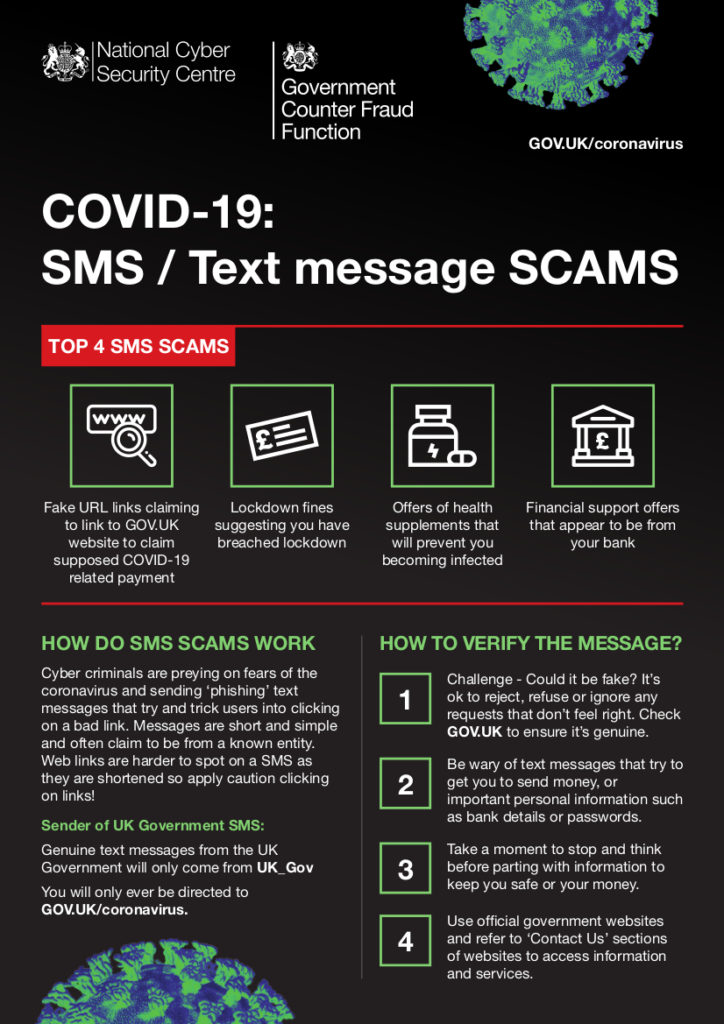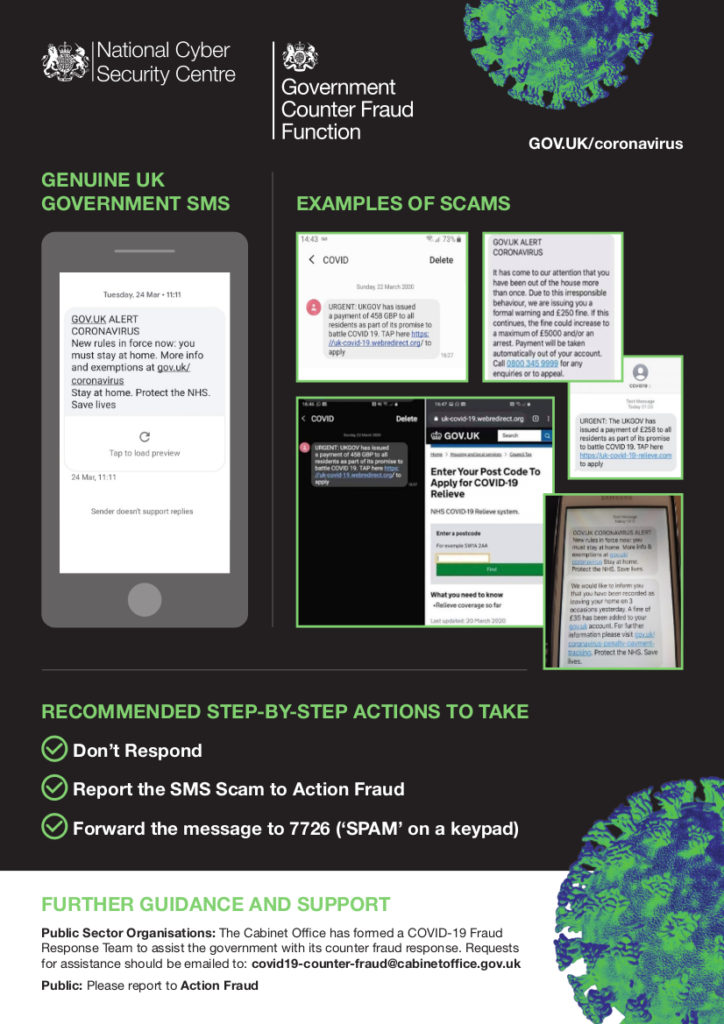Cyber criminals are preying on fears of the coronavirus and sending ‘phishing’ text messages that try and trick users into clicking on a bad link.
How do the scams work?
Messages are short and simple and often claim to be from a known entity. Web links are harder to spot on a SMS as they are shortened so apply caution clicking on links!
The Government’s National Cyber Security Centre, alongside security researchers around the world, has warned users of SMS, email, and online scams using COVID-19 information as a lure.
The NCSC warning lists the ‘Top 4 SMS Scams’ as following similar patterns:
- fake government (GOV.UK) links
- lockdown fines
- health supplements to protect against the virus
- financial support from the recipient’s bank.
Scammers have launched numerous campaigns in the weeks since early December, looking to steal personal information, conduct identity theft, scam victims, and for potential financial gain. In the case of the scam leveraging the UK government, SMS were sent from UK_Gov, rather than GOV.UK.


How to verify the message?
1. Challenge – Could it be fake? It’s ok to reject, refuse or ignore any requests that don’t feel right. Check GOV.UK to ensure it’s genuine.
2. Be wary of text messages that try to get you to send money, or important personal information such as bank details or passwords.
3. Take a moment to stop and think before parting with information to keep you safe or your money.
4. Use official government websites and refer to ‘Contact Us’ sections of websites to access information and services.





